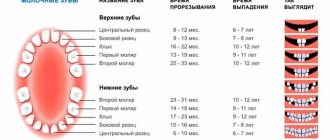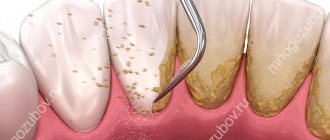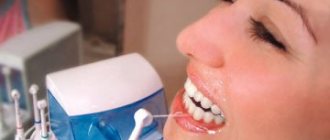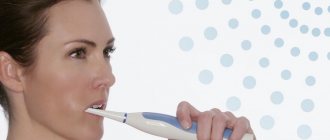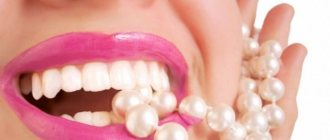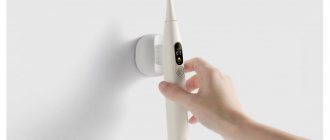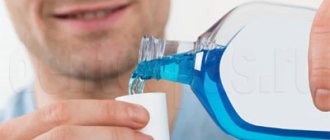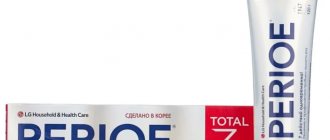People knew that they needed to brush their teeth after eating several thousand years ago. But until about the 20th century, only a few people could boast of healthy teeth. Most of the population did not pay due attention to oral hygiene. And in the arsenal of those who did take care of their teeth, there were not many cleaning devices.
Today, stores offer a variety of oral care devices and products. However, most people only use a toothbrush, although flossing also has its fans. According to the Dental Association, a toothbrush can remove about 30-40% of plaque. A regular toothbrush does not remove plaque from interdental spaces and hard-to-reach places. For oral hygiene to be truly effective, it is necessary to use several tools to clean your teeth. One of such devices is the Waterpik irrigator, you can buy it in St. Petersburg or another city in our stores.
Toothbrush
Despite the fact that a toothbrush by itself is not able to completely clean teeth of bacteria and plaque, it should be used daily. The hardness of your toothbrush should match your teeth type. If thin enamel is brushed daily with hard bristles, this will result in big problems with your teeth. It is better to consult your dentist regarding the type of brush hardness. A toothbrush can be used for no more than 3 months, after which it becomes a breeding ground for bacteria and germs.
There are traditional and electric toothbrushes.
Dentists often hear the question - which brush to choose? The answer depends on how much time you spend brushing your teeth. You need to brush your teeth for 3 to 5 minutes, spending time on each tooth. Many people brush their teeth on the go, resulting in little benefit from brushing. An electric toothbrush is better at removing plaque and can clean your teeth in just 2 minutes.
Toothpastes
Used to brush teeth twice a day, morning and evening. If the oral cavity is in normal condition, hygienic pastes are used - with a standard composition, removing soft plaque from the surface of the enamel, freshening breath. Therapeutic and prophylactic pastes are used if a person has problems with the health of teeth or gums. Combined pastes are an intermediate option; they can be used for the prevention of dental and periodontal diseases periodically, from time to time.
The composition of therapeutic and prophylactic pastes may contain fluorides, phosphates, calcium, amino fluoride, fluorine. These elements strengthen the enamel and saturate it with minerals. The fluoride content in the paste according to the PPM index in this case should be more than 0.15%.
If toothpaste is to be used to prevent gum disease, it should contain antiseptics and anti-inflammatory components. These are chlorhexidine, tin fluoride, triclosan. Herbal antiseptics and anti-inflammatory components (extracts of chamomile, nettle, eucalyptus, etc.) have almost no effect and do not provide effective prevention of inflammation.
If the enamel is sensitive, you can use pastes that contain mineral components (fluorides, nitrate or potassium chloride, strontium chloride). Their concentration must be high. They will strengthen the enamel, help seal the dentinal tubules and reduce tooth sensitivity.
Hygienic toothpastes can be whitening: they better remove soft plaque from the surface of teeth and help lighten the enamel due to this. Such compositions are abrasive. Paste manufacturers indicate it in the RDA. If the indicator exceeds 100-120 units, the abrasiveness is high. If the abrasiveness is more than 120 units, frequent use of the paste can be dangerous for the enamel.
Teeth whitening can occur due to the content of enzymes in toothpaste (papain, bromelain, polydone, pyrophosphates, etc.). These substances dissolve soft deposits on the enamel surface and ensure their removal without an abrasive effect.
When using toothpastes with special (mineralizing, whitening, anti-inflammatory) effects, DentoSpas dentists recommend:
- consult with your doctor and brush your teeth with the toothpaste recommended by him;
- Follow proper teeth brushing technique;
- Do not use the same paste for a long time, constantly. With constant use, bleaching compounds damage and destroy enamel. Anti-inflammatory pastes can change the microflora of the oral cavity.
Whitening or hygienic pastes do not replace the procedure of professional teeth cleaning: if plaque accumulates on the surface of the enamel or tartar forms, they must be periodically removed in the dentist’s office. In case of gum disease, the use of prophylactic pastes should not replace visits to the periodontist and preventive procedures performed by him.
Dental floss
Even the most modern toothbrush cannot get into the spaces between your teeth. But it is in these places that pieces of food get stuck, which then become a habitat for billions of bacteria. If you do not clean food from the interdental spaces, sooner or later caries will form in these places. Dental floss, or floss as it is also called, is a simple and at the same time very effective device for cleaning the spaces between teeth.
In pharmacies you can find various modifications of floss for cleaning teeth. Depending on the width between the teeth, you can select the optimal width floss. Floss can be waxed or unwaxed. Wax-impregnated dental floss is perfect for those who are just starting to use this device. However, non-waxed floss does a better job of cleaning the surface of the tooth. Use dental floss with caution to avoid damaging your gums. Most doctors recommend flossing daily before bed.
What is proper oral hygiene
The goal of proper personal oral hygiene is to make your teeth healthier, your breath fresh and pleasant, and to prevent bleeding gums and the formation of yellow plaque. As a result of proper care, your smile will become attractive and snow-white, and the main result is the prevention of dental diseases.
Proper nutrition is also very important. For example, apples strengthen enamel.
There are several indicators of proper and effective oral hygiene:
- clean teeth without stuck pieces of food;
- pink gums that do not hurt or bleed when brushing;
- no bad breath;
- There is no pain when chewing food.
If the condition of your teeth does not correspond to at least one of these signs, you need to contact your dentist. If necessary, he will provide treatment and give advice on oral care, recommend suitable toothbrushes and pastes, and point out problem areas.
Description of the irrigator
This modern device is also designed for cleaning interdental spaces and hard-to-reach areas. Its action is to direct a stream of water to areas that require cleaning. An irrigator is quite an expensive thing, but its use can effectively clean teeth from stuck food, plaque and bacteria. Unlike dental floss, a brush for cleaning teeth or a toothpick, it is impossible to damage the gums with an irrigator. Using an irrigator is absolutely safe for enamel and gums. Modern irrigators are the best alternative to all devices for cleaning hard-to-reach places between teeth.
The importance of proper oral care
The need to take care of your oral cavity is obvious. The purpose of hygiene procedures is, first of all, the prevention of caries, periodontal disease and other diseases that can lead to tooth loss. Irregularity of procedures leads to the fact that plaque remains on the surface of the enamel, and food debris accumulates in the gaps, which rot and create a comfortable environment for the proliferation of pathogenic bacteria. As a result, bad breath appears and gum disease develops.
If plaque remains on the teeth for a long time, it mineralizes and turns into tartar, which cannot be removed at home. The stone causes deformation and thinning of tooth enamel, making it more sensitive and painful.
But proper oral hygiene is important for more than just dental health. According to doctors, there are more than 60 diseases that are directly or indirectly the result of dental problems. Among them:
- diseases of the cardiovascular system;
- rheumatism;
- digestive problems;
- kidney disease;
- skin rashes;
- nervous disorders.
Therefore, systematic and competent hygiene of teeth and gums is important for the overall health of the body.
General principles of good oral hygiene
The first and most important rule, which even children know, is the immutable truth that teeth should be brushed twice a day. This must be done correctly, with a specially selected brush. In addition, it is necessary to additionally clean the interdental spaces using floss.
But there are also nuances that not everyone knows:
- For dental health, it is necessary to adhere to a proper diet, avoiding snacks between main meals;
- choose toothpastes and rinses containing fluoride, which strengthens the enamel;
- after brushing your teeth and eating, use rinses that will destroy bacteria where the toothbrush cannot reach;
- Brush your teeth for at least two minutes.
Don't skimp on brushing your teeth properly. This can lead to serious problems in the future.
Oral hygiene products
To effectively care for your teeth at home, you need to purchase several items. Toothpaste and a brush alone are not enough to clean the interdental space. If you neglect additional means, pathogenic bacteria and food debris will accumulate there, causing problems (including tooth loss).
Toothbrushes
You should select a toothbrush individually, taking into account several factors. First of all, this is the stiffness of the bristles and the size of the handle. The bristles are of medium hardness and are universal. Soft brushes are recommended for gum disease and bleeding, while hard brushes are recommended for very strong teeth or for dentures. The latter must be used with caution, because improper brushing with it will lead to serious damage to the gums and enamel.
The optimal length of a toothbrush handle is about 30 mm.
Effective dental care begins with choosing the right toothbrush. It is equally important to store it correctly. It is important that the brush dries quickly because moisture promotes the growth of bacteria. In addition, it is recommended to store brushes without a case.
The quality and effectiveness of teeth cleaning depends not only on the stiffness of the bristles, but also on the shape. Dentists do not have a consensus on this indicator. For example, brushes with fibers that form a V-shape clean the V-shape more effectively. Bristles of different heights remove plaque from the cervical area, as they effectively penetrate into the gingival sulcus.
The brush needs to be changed every 3 months.
Toothpastes
Another essential oral care product. Depending on the condition of the teeth, you can choose a therapeutic or prophylactic agent. Textures also vary - from gel-like to creamy. Most toothpastes contain fluoride, but its percentage varies. If you can choose a prophylactic paste yourself, based on reviews and advice from friends, then a therapeutic paste can be chosen only on the recommendations of doctors.
For one brushing of your teeth, it is not necessary to squeeze out a large amount of paste - a pea-sized volume is enough.
You should change your toothpaste every few months to ensure comprehensive oral care. Anti-bleeding agents can be alternated with strengthening and whitening agents. For example, in the morning you can use pastes against caries, and in the evening against inflammation. Before you buy baby toothpaste, study the special lines of famous brands.
Dental floss
Dental floss (or floss) is necessary to completely clean the interdental space. There are several varieties: flat, round, twisted. The threads may be coated with wax.
It is necessary to select a specific floss taking into account individual characteristics. First of all, it is worth considering the distance between the teeth. Without dental floss, comprehensive oral care is impossible; only it can completely remove food debris and prevent the proliferation of pathogenic bacteria.
Tongue cleaners
It is necessary to cleanse not only your teeth and gums of bacteria, but also your tongue. The plaque that forms on it causes bad breath and promotes the development of bacteria. To remove plaque, you can use special toothbrushes, which are equipped with a special rubber ribbed surface on the back. There are also separate tools for this procedure. It is necessary to clean the tongue by making careful movements in the direction from the base to the tip.
Rinse aids
You should use mouthwash at least twice a day, after each brushing of your teeth. It is also useful to apply them after each meal to avoid the growth of bacteria in rotting pieces of food.
Regular use of fluoride rinses for 30 seconds helps to further clean the teeth and mucous membranes. They help remove plaque, bacteria, and waste products from hidden and hard-to-reach areas of the oral cavity. These products contain various useful components, for example, purified essential oils, menthol, which reduce the concentration of microbes, protect the enamel from caries, reduce inflammation and bleeding of the gums, and remove bad breath.
In what cases should you sound the alarm?
It is important to notice warning signs in time and not to treat them with disdain. Noticed blood during regular hygiene procedures related to the oral cavity is a clear sign that you need to seek help from a dentist and treat your gums. Their excessive sensitivity is also a reason to sound the alarm. The gums should not swell or react to hot and cold foods with acute pain. Experts advise paying attention to whether the distance between the teeth has changed? If the answer is yes, you should be concerned.
